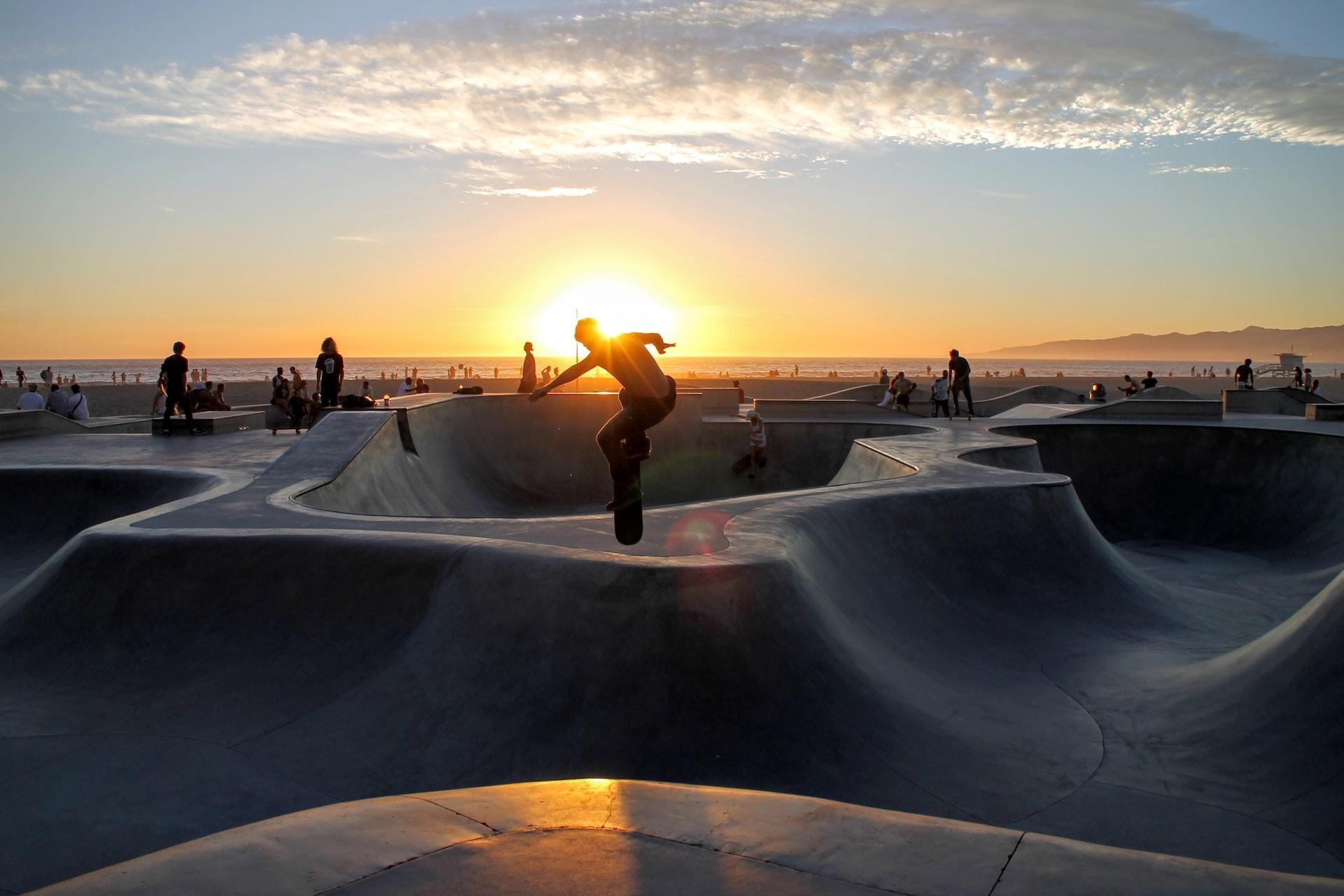Skateboarding is an exciting sport and the inherent risk, speeds, heights, and intensity of it is generally what makes it so appealing.
However, if you want to get good at skateboarding and are scared of it, it can hold you back. Skateboarders who are unwilling to push the limits or even fall off their board will never get better at it so with that in mind, here's how you can make skateboarding less daunting.

Start Off Easy
The more comfortable you are on your board, the easier it'll be to attempt advanced tricks, achieve greater speeds, and make higher jumps.
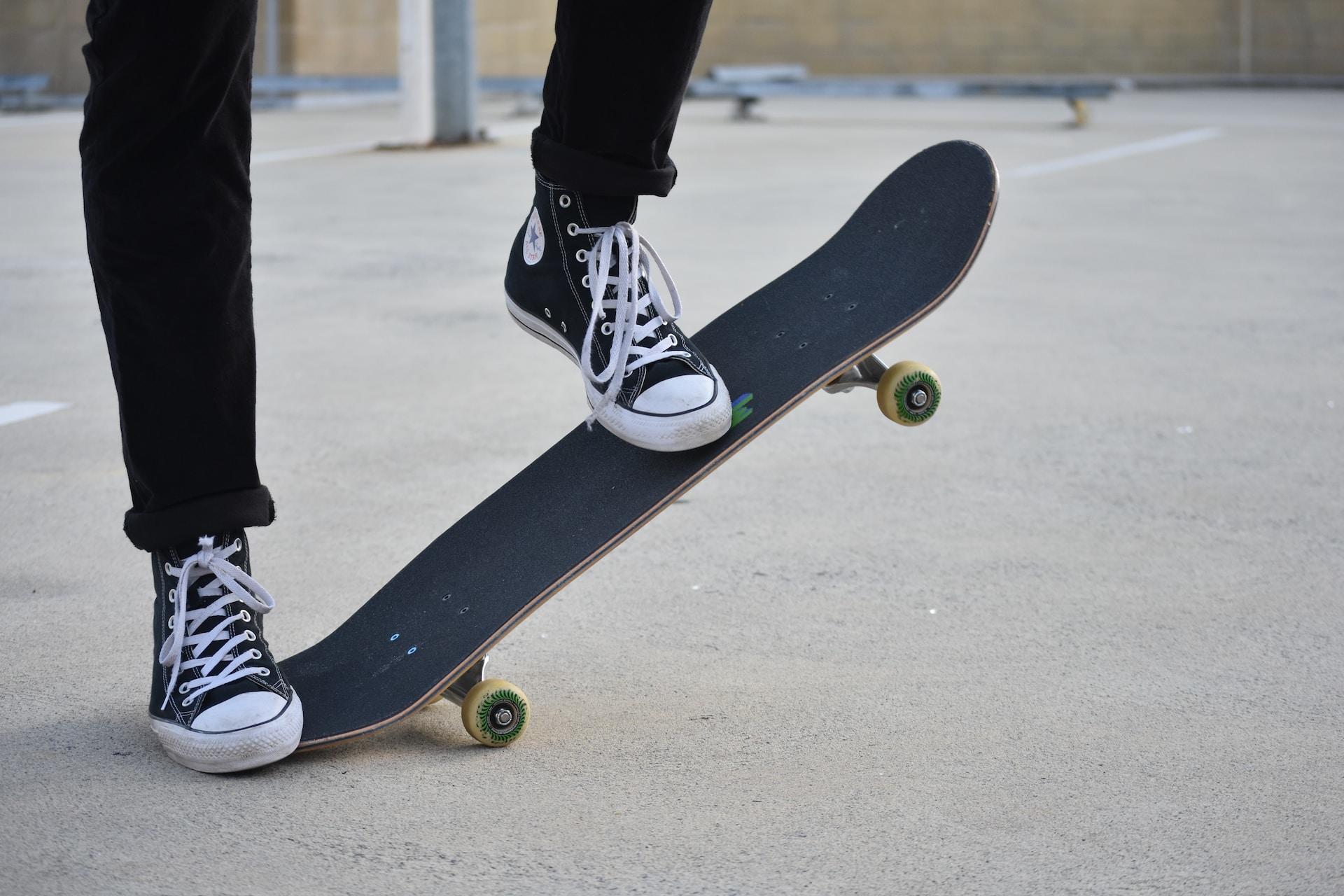
Before you consider anything remotely intense, just learn the very basics to get started with skateboarding. Get comfortable standing on the board, pushing off with your back leg, and making turns.
You can practice in flat open areas like abandoned parking lots away from the bowls, ramps, or other obstacles at a skatepark.
There's no rush to become really good at skateboarding and you can learn and progress at whatever pace you feel comfortable with. The worst thing you can do is attempt something stupid, have it go badly, and then decide that you never want to skateboard again.
Wear Protection and Safety Equipment
Not only will safety equipment drastically improve your chances of avoiding serious injury, but it'll also make it much easier for you to skate for longer.
You don't want your skateboarding session cut short because you had an innocuous fall, a nasty bump, or sustained an injury that will prevent you from skateboarding for several days, weeks, or even months!
Invest in a helmet, knee and elbow pads, wrist guards, and even protective clothing if you're at risk of hurting your hips or tailbone.
Speak to the professionals in skate shops for advice on what protective gear you should have and which will be the best at protecting you and helping you get over any fears or concerns you might have about skateboarding.
If you're planning on practising skateboarding on your own, safety equipment is even more important as you won't have anyone there to help you in the event you have a nasty fall.
Skate in the Right Places
Advanced skaters will see almost anywhere as a suitable place to skate, making the urban landscape their playground.
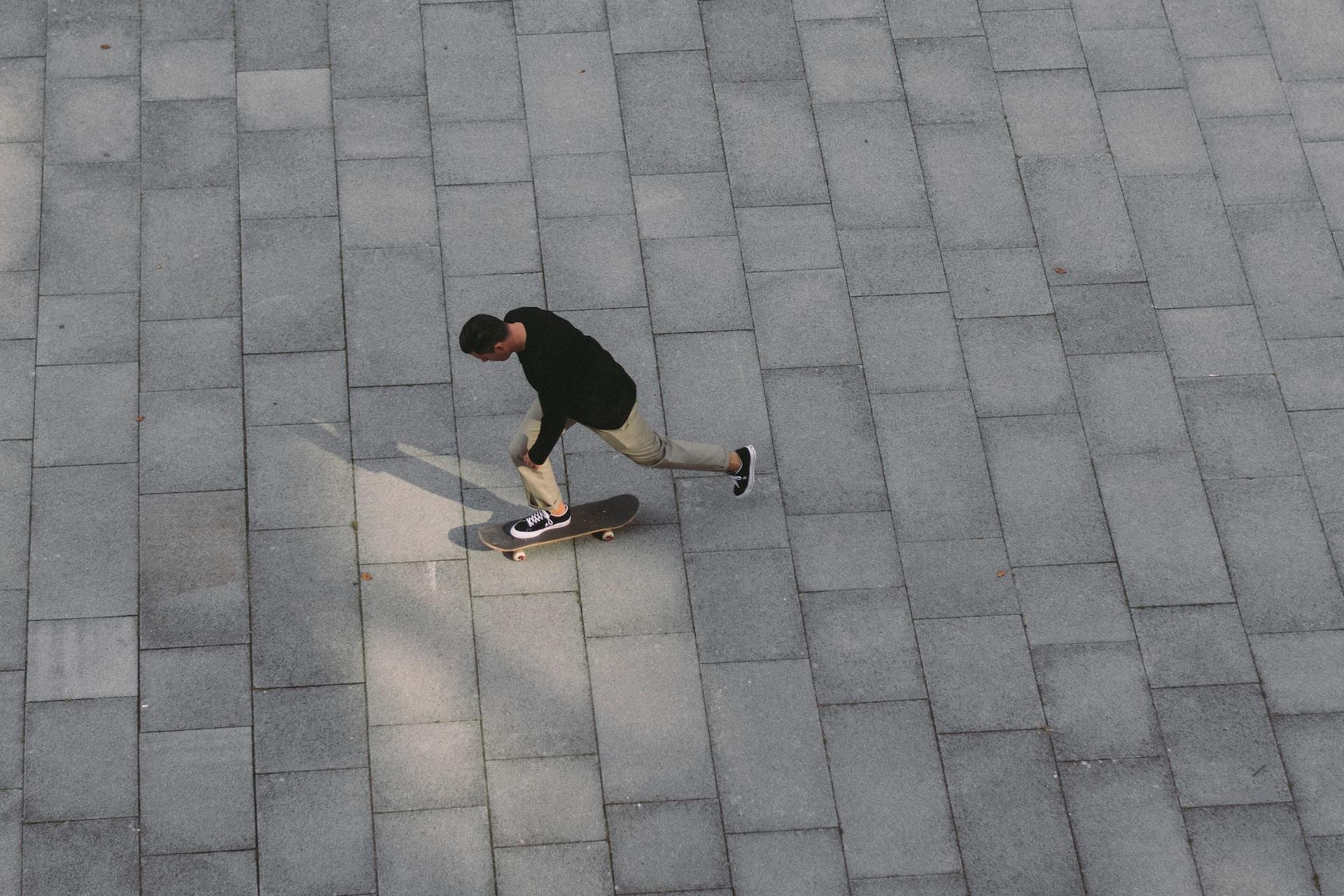
For the less advanced skateboarders who are concerned about their safety or may have reservations about skateboarding at all, choose suitable places for skateboarding where you can comfortably practice without too many risks.
Skateparks are naturally good places to skateboard safely as they're away from pedestrians and vehicles, but a lot of the installations may be better suited for advanced skateboarders.
Another great place to practice is in abandoned parking lots as they often include large expanses of unused smooth asphalt that you can use to work towards getting over your fear of skateboarding or falling.
Don't forget that skateboarding and longboarding are different so places that are suitable for skateboarding mightn't be good for longboarding or cruising.
Use the Appropriate Technique
Skateboarding properly is a way to make it far less scary. Take the time to develop proper technique and form before attempting anything more advanced.
By mastering the basics of skateboarding, you'll feel far more comfortable on your board and advanced techniques won't be anywhere near as daunting as they would be for someone whose fundamentals need some improvement.
To avoid picking up bad habits and to learn proper form, it's recommended you seek advice from experienced skateboarders or even work with a skateboard tutor or instructor.
Learn How to Fall
As a skateboarder, you will fall and you'll need to understand that it's a natural part of it. Even advanced skateboarders will regularly fall off their board when attempting tricks, but they know how to do it as safely as possible.
Safety equipment will reduce the risk of injury when you fall, but you still need to learn how to fall correctly. When falling, you'll have a tendency to put your hands out in front of you to stop the fall, but this can actually put all the force of the impact through your hands, wrists, and arms, increasing the chance of sprains and breaks.
Skateboarders tend to know when they're going to fall, prepare for it, and fall in a controlled way. They usually go with the fall and roll when they land to better distribute the impact across their body and minimize the risk of injury.
Absolute beginners should practice jumping from their board and light falls. You can also start by falling and rolling onto the grass. Once you've got to grips with controlling your falls onto grass, it'll be much easier to fall when it's on asphalt.

Believe in Yourself
If you're really scared of skateboarding or attempting tricks, then the biggest barrier won't be your physical or technical ability, it'll be your mind.
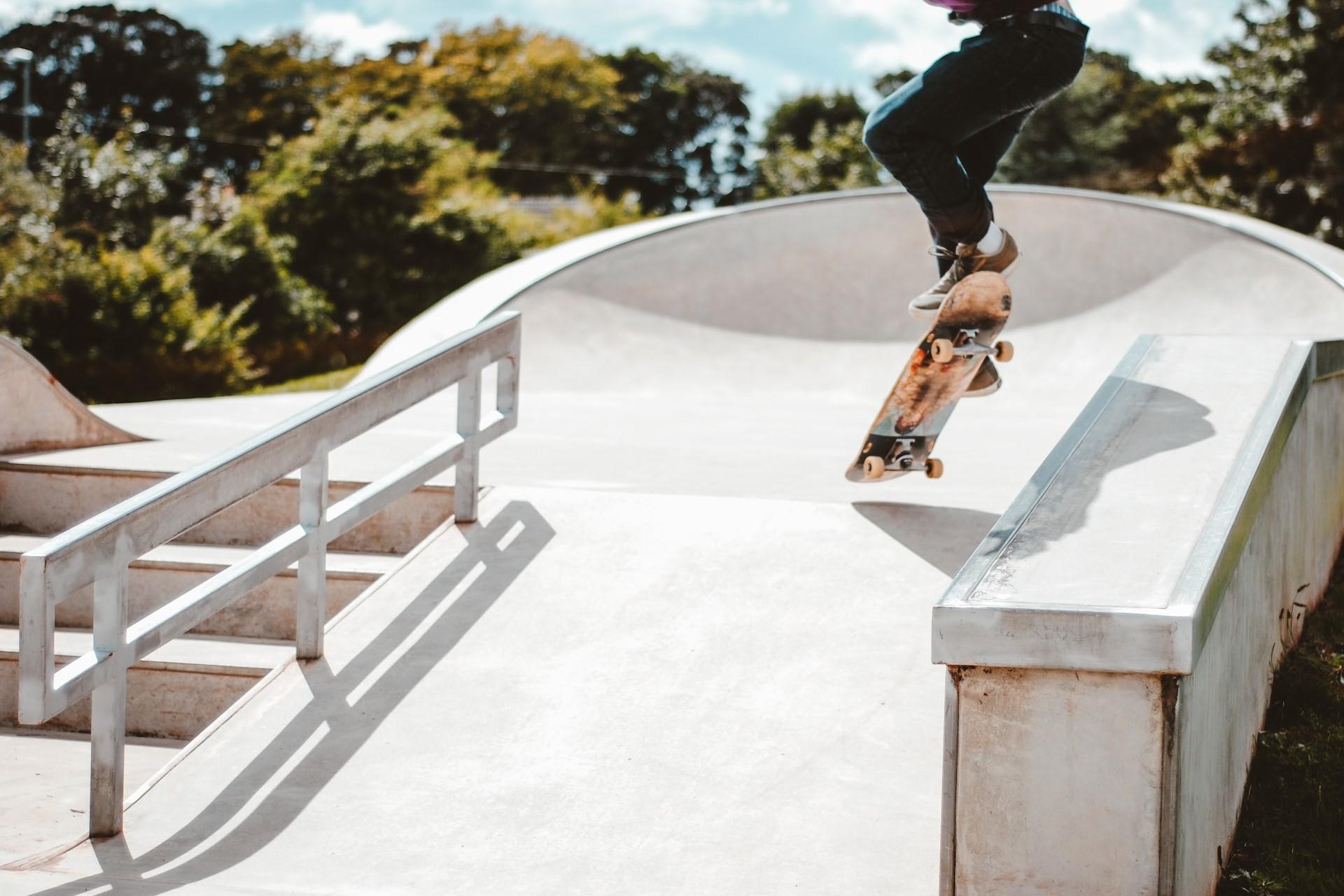
You won't be able to skateboard if you don't think you can and as cliché as it may be telling you to believe in yourself, it's true.
Motivation and belief are essential and remembering that learning to skateboard doesn't happen overnight can help you with this. You won't become a master of skateboarding quickly and nobody ever really does.
Skateboarding is incredibly difficult and takes years to master, and failing is a huge part of how skateboarders learn. There's no shame in making mistakes and once you know how to fall, have the right protection, and proper technique for the tricks you want to attempt, you'll see that you're actually more capable than you first thought.
Set Smaller Achievable Goals
To overcome any fear, you can try to do it quickly or you can set yourself achievable goals. Since skateboarding has inherent dangers, overcoming your fear of skateboarding quickly by just “going for it” isn't something we can safely recommend.
Instead, set yourself small goals and challenges, celebrate the smaller victories, and you'll see that these will soon build towards greater achievements. Try to work out which aspects of skateboarding affect you the most and work progressively towards them rather than trying to overcome your fear in one attempt.
Completing smaller challenges will also help build up your confidence and by the time you actually come to face what was once one of your biggest fears, it'll only feel like a much smaller step.
Find a Supportive Community of Skateboarders
Many of the experienced skateboarders you'll meet will have had similar experiences. Naturally, you'll meet those who seemingly have no fear and it's unlikely they'll be able to help you, but if you can find a skateboarder who's been through a similar experience, ask them how they managed to get over it.
Skateboarding is certainly more enjoyable with people who share your passion and when you're enjoying something, it's much harder to be scared of it. Once you start really having fun skateboarding, you'll almost forget to worry about it.
Practice Regularly
Regular practice will improve your technique while also helping to build confidence and make you less scared of skateboarding. Naturally, there'll still be aspects of skateboarding that scare you, but these fears will start to disappear as your confidence and technical ability grow.
The simplest way to get over any fears you have when you skateboard is through the simple fact of being familiar with skateboarding.
Regular travelers are far less likely to be scared of flying and avid climbers will have likely got over any fear of heights that they may have had. Familiarity makes things far less scary so the more time you spend on your board, the less scary you'll find skateboarding.
The Value of Resting
The law of diminishing returns applies to skateboarding, too, and you can't underestimate the value of taking a break when you need to.
Constantly trying and failing can be demoralizing and you'll only start to make more mistakes as you tire. When you're too tired to keep skateboarding, you should call it a day as errors and mistakes will only become more common.
Similarly, when you're exhausted or just a bit battered and bruised from a day of falling off your board, you'll perform better if you take a day or two off from skateboarding and come back stronger once you're fully healed.
Get Lessons
Arguably, the easiest way to get over a fear of skateboarding is through instruction. Look to private skateboarding instructors or tutors who can work through your concerns with you, tailor each session to you and how you like to learn, and make sure that you're not doing anything you aren't comfortable doing.
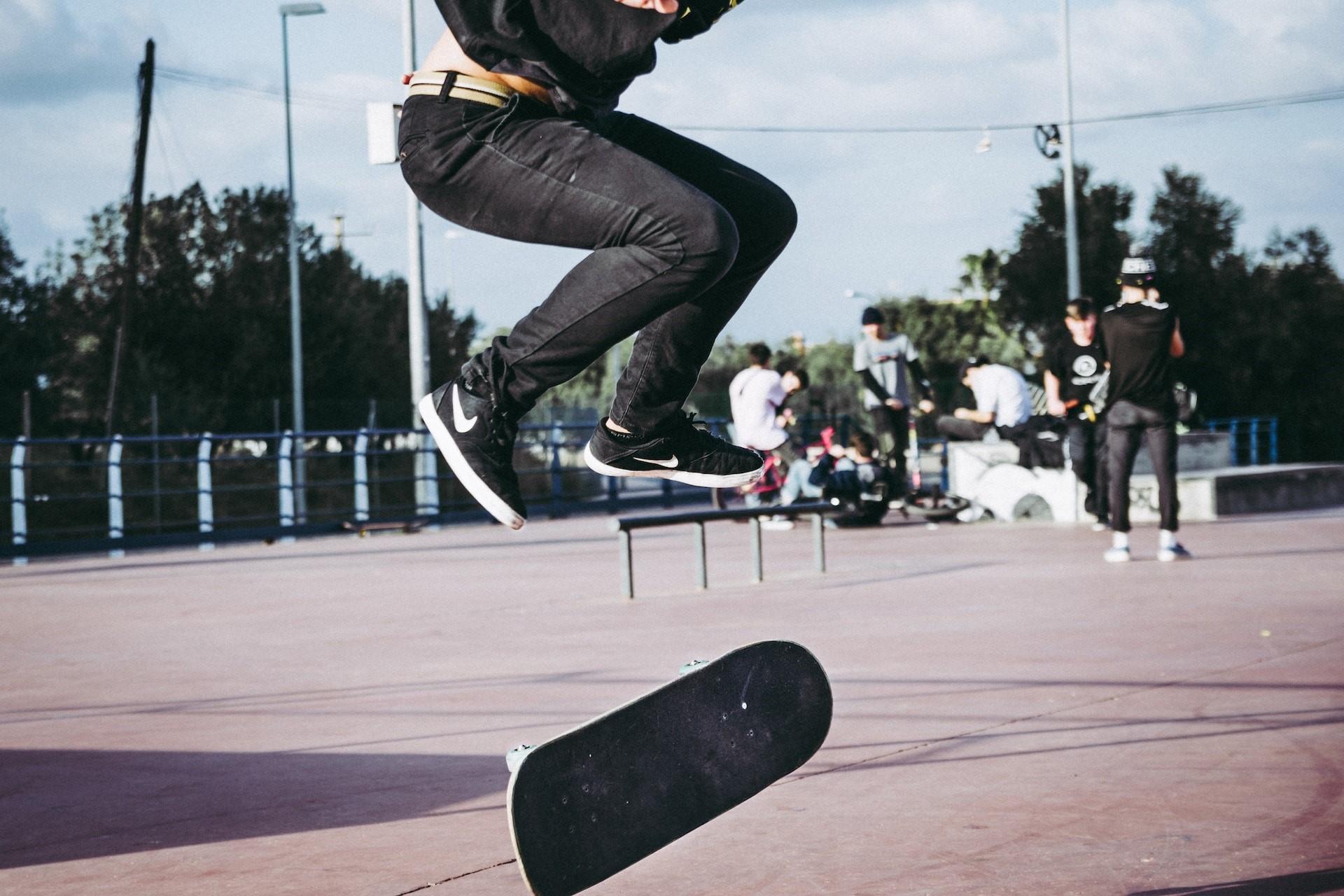
Plenty of the tutors on Superprof offer the first lesson for free so try a few different ones out before choosing the one that's right for you and the best to help you stop being scared of skateboarding. No two tutors are the same so even if an instructor has plenty of glowing reviews, it pays to see what they're like before working with them.
There are tutors for all budgets and levels so you're bound to find a great instructor to help you improve your skateboarding technique and conquer your fears.
Summarise with AI:

